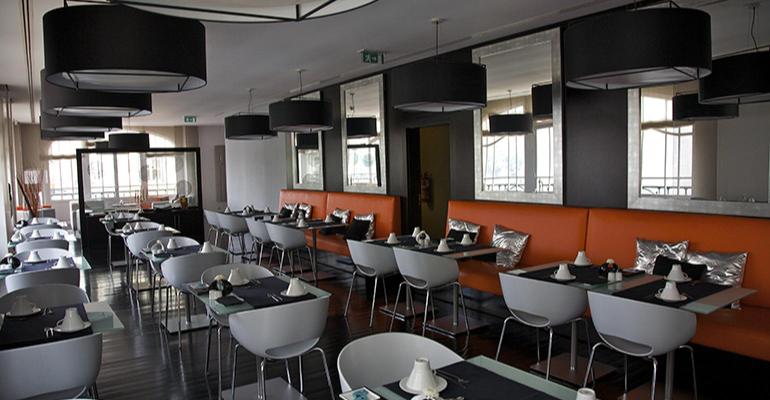New data from Alignable shows that 36% of independent restaurant operators couldn’t pay their rent in July, a material improvement from 45% who reported delinquencies in June.
July was the second lowest month for rent delinquencies in the independent restaurant sector this year, behind March, which was at 34%. May’s delinquencies were 44%, April’s were 49%, February’s were 40% and January’s were 38%. Rent delinquencies for the sector were a staggering 52% in December, illustrating the past six months have been all over the map for independent operators, who continue to grapple with higher rent prices overall, as well as higher interest rates and slowing traffic.
Alignable’s data shows that 55% of SMB owners are facing rent increases. Of those 55%, 15% are contending with rent that's at least 20% higher than it was at the beginning of 2023. Further, the Federal Reserve once again raised interest rates last week, inching up a quarter-percentage point to as high as 5.5%, or the highest level in 22 years. Simultaneously, some inflationary pressures continue to challenge operators, including beef, paper and labor costs. And, according to Revenue Management Solutions, quick-service traffic declined by nearly 2% in Q2.
That said, the restaurant space slightly outperformed many of its small business peers. Overall, the national average for small business owners who couldn’t pay rent in July was 37%.
Perhaps unsurprisingly, the outlook for small businesses remains mixed. The NFIB’s Small Business Optimism Index increased 1.6 points in June, to 91; however June was the 18th consecutive month below the 49-year average of 98.
“Halfway through the year, small business owners remain very pessimistic about future business conditions and their sales prospects,” NFIB Chief Economist Bill Dunkelberg said in a statement. “Inflation and labor shortages continue to be great challenges for small businesses. Owners are still raising selling prices at an inflationary level to try to pass on higher inventory, labor, and energy costs.”
Contact Alicia Kelso at [email protected]





